
Producing over 40% of teachers in South Africa
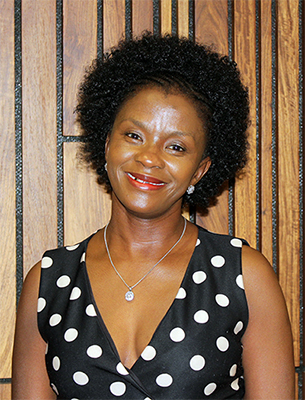 Dr Jacomina Motitswe of the Department of Inclusive Education in the College of Education (CEDU) is one of the inspired academics at Unisa to accomplish the outstanding achievement of her PhD this year. Focusing with a passionate drive on teaching for diversity, Motitswe has taken the harsh truth that is the slow nature of change and researched the struggles of implementing inclusive education in practice as well as theory. She is determined not to allow learners with disabilities to be marginalised through the lack of practical implementation at schools, but rather for these learners to be included in every facet of education and life.
Dr Jacomina Motitswe of the Department of Inclusive Education in the College of Education (CEDU) is one of the inspired academics at Unisa to accomplish the outstanding achievement of her PhD this year. Focusing with a passionate drive on teaching for diversity, Motitswe has taken the harsh truth that is the slow nature of change and researched the struggles of implementing inclusive education in practice as well as theory. She is determined not to allow learners with disabilities to be marginalised through the lack of practical implementation at schools, but rather for these learners to be included in every facet of education and life.
“Well, it was hectic. I registered in 2013 and completed this year, and it took over a great chunk of my life through all that time. It was a learning curve, obviously, very different from anything else I have done, but it was worth it in the end. I have been striving to have my voice heard in this regard, so that these learners, these children, can have theirs heard too.
“For a long time I was a teacher and head of department in the foundation phase in a small, mining community. We had many diverse learners with learning difficulties and language problems. It was there that I really developed this passion because I felt so alone while struggling to help those children. Many of my colleagues were not motivated after years of struggling to see an improvement. What I did learn, and what I still know to be true, is that if a teacher shows an interest, a passion for their work, then the learners will respond.”
“Learners with learning difficulties and with disabilities are still marginalised. My focus was to shift from a medical model to a different strategy that would focus on the learner’s needs. The policies, guidelines, and frameworks are there, but the implementation of these is too slow in classrooms. Teachers are not yet that conversant with inclusive practices. They say it is too complex. But that is unacceptable. There are other issues that need to be addressed as well, especially with regards to overcrowding and the simple inability of teachers to offer individual time to learners who require it when their classrooms are overflowing.
“When we look at inclusive education, it is important to remember that these children should never be marginalised. Special schools that cater for different disabilities (learners with physical disabilities) need to be refurbished and accommodated to be accessible to those learners. Just because they struggle with a disability does not mean that they are not capable. And as long as the disability is not severe, then students can, and should, be included with other students, and teachers must be developed and trained and must be continuously updated. Government special schools do not have enough resources to cater for those students. One of the schools that I went to for data collection was a special school with that exact problem. Those teachers had no specialisation, and the school didn’t have therapists on staff, so they depended on the departmental therapists who didn’t come to the school on time, if at all.
“I have come up with my recommendation, and from here I will follow my model, my framework, to help in my way to find a solution to the problem. The system is at fault, but as with all things, it will rectify itself in time.”
*By Carmen Taxer
Publish date: 2017-11-07 00:00:00.0
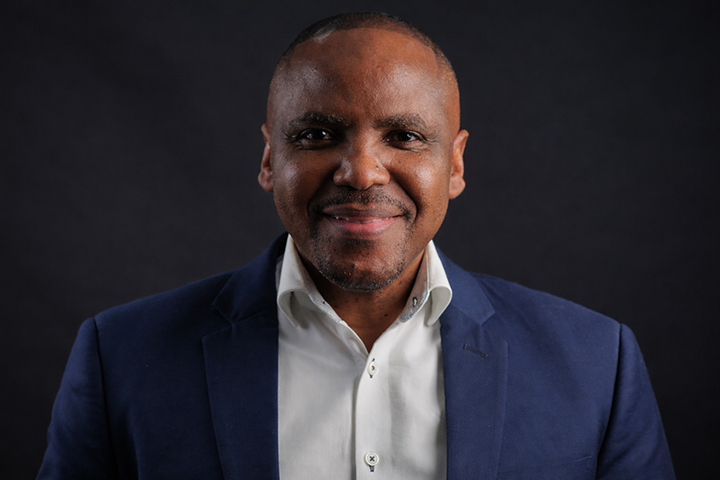 National leader in mathematics education aims to improve outcomes
National leader in mathematics education aims to improve outcomes
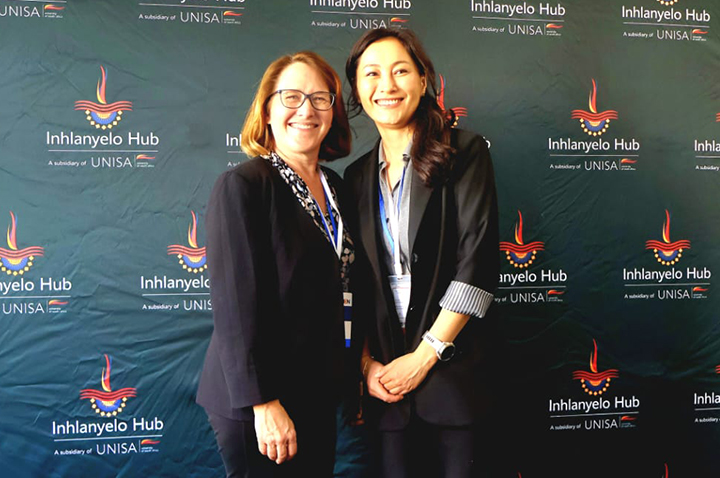 Unisa roundtable focuses on empowering SA women to lead in innovation
Unisa roundtable focuses on empowering SA women to lead in innovation
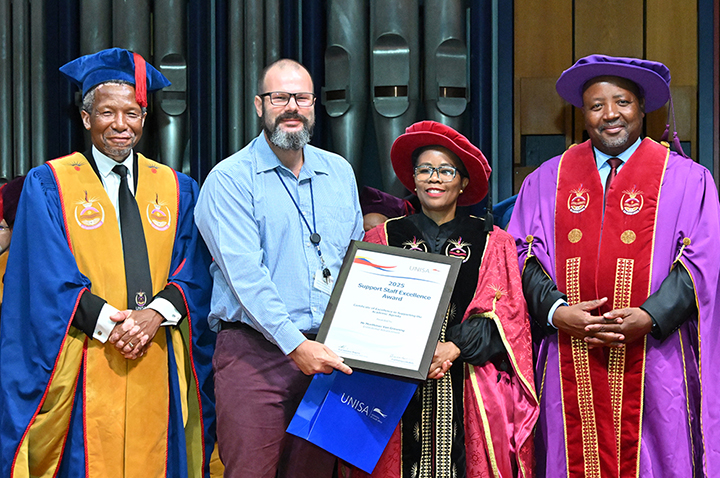 Unisan recognised for web excellence
Unisan recognised for web excellence
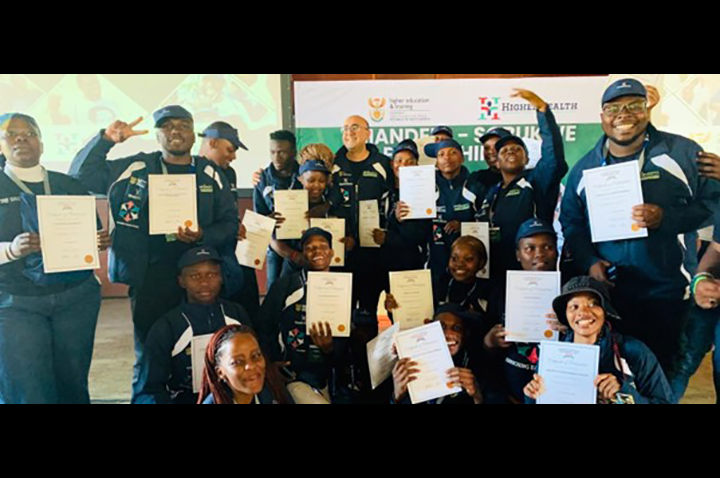 Office of the Dean of Students participates in leadership camp
Office of the Dean of Students participates in leadership camp
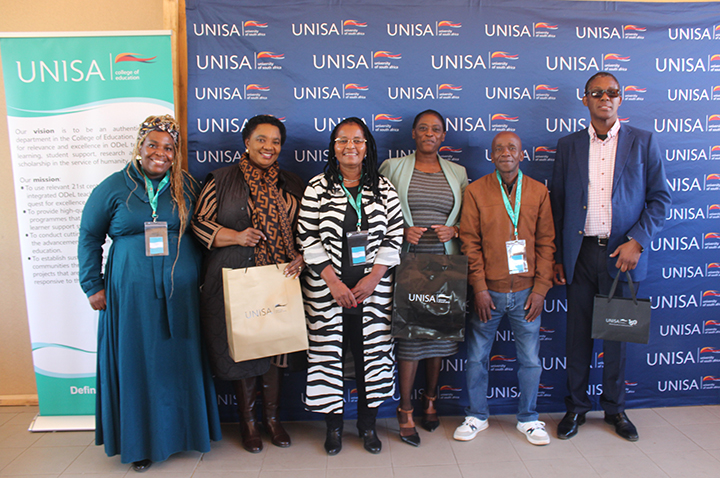 Unisa project fosters digital and pedagogical innovation in Limpopo schools
Unisa project fosters digital and pedagogical innovation in Limpopo schools